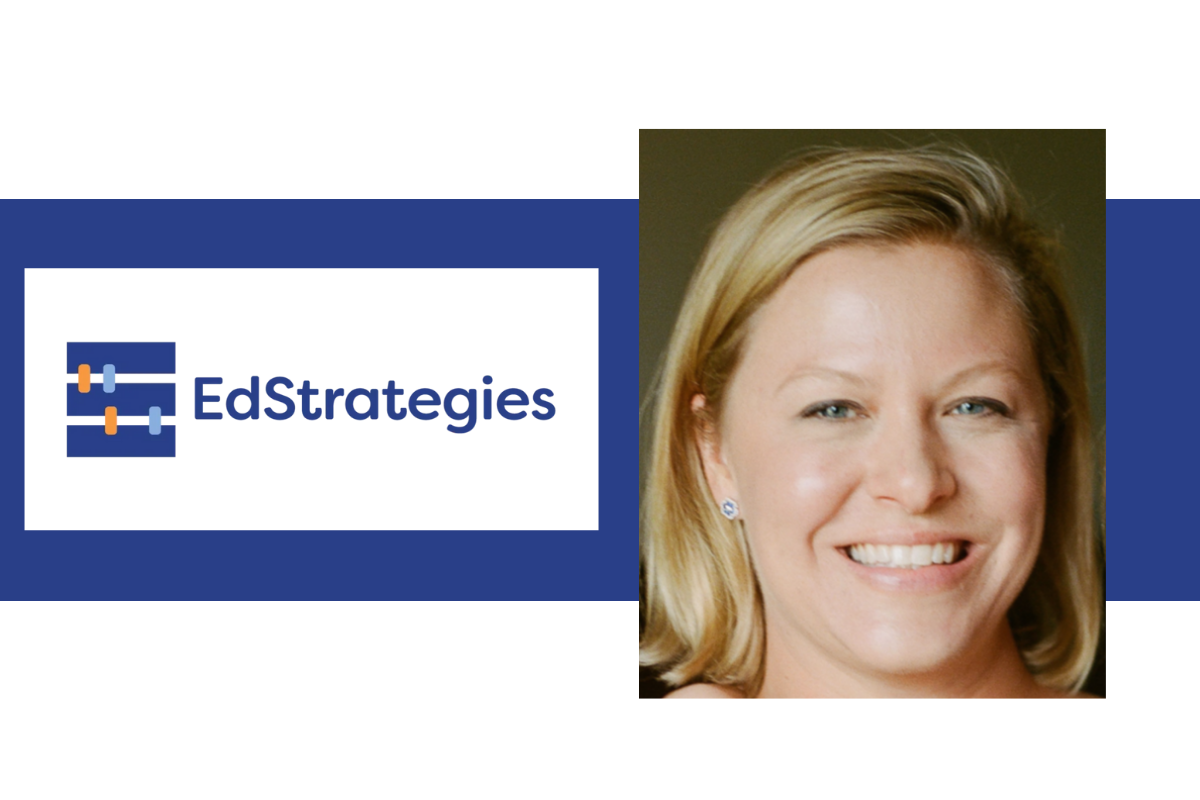
Anne Miller
Principal, EdStrategies Consulting
Anne Miller is passionate about improving educational opportunities and has been committed to doing so for almost two decades. She was a founding school leader at North Side Community School, a high-performing elementary charter school serving students from north St. Louis. Anne founded the school’s Pre-K Program in 2010, and served as Early Childhood Director overseeing 120 pre-k and kindergarten students in nine classrooms. Under Anne’s leadership, 80% of pre-k students started kindergarten on grade level despite entering school one to two years behind their peers nationally.
Anne has extensive research and policy experience. Her interest in public policy began during her time at the Early Education for All Campaign, an advocacy organization working for universal pre-k in Massachusetts. She has conducted various in-depth research projects evaluating the education landscapes in Rhode Island, Massachusetts, South Carolina, Texas, and Missouri. Designing and building collaborative, innovative systems-level solutions to address opportunity gaps for students and families is usually at the heart of Anne’s work.
Before returning to St. Louis, her hometown, Anne taught kindergarten in Spain and received a Master’s of Public Policy from Brown University. She has an undergraduate degree from Dartmouth College.
What inspired you to work in education? What has made you the most proud?
I grew up in St. Louis, Missouri and had the opportunity to travel and live in other communities later on in my life. Seeing the way other communities took care of their most vulnerable citizens really illuminated the stark reality of the opportunity gap that exists in our state. When I graduated from college, I didn’t want to move back to Missouri because of these glaring inequities, but as my career in education continued, there was a moment when I realized that Missouri was just the place where I should be. Fifteen years later, I am still working to improve educational opportunities for kids in underserved communities in our state. I am most proud of the way our work brings people and organizations together to collectively address really complex challenges and fosters deep partnership and collaboration. It is humbling to work with amazing leaders and teachers that have pushed forward despite the incredible challenges over the past two years because they are so committed to the students and families that they serve. I am proud to even be in the same Zoom room as these heroes.
The Pre-K Cooperative has existed in Kansas City for three years – what difference has this made in Kansas City?
This year, 270 students accessed pre-K seats in Cooperative sites. Three years ago, those 270 seats did not exist. The Cooperative has essentially achieved our initial goal of expanding equitable access to quality pre-K by maximizing the deployment of state pre-K dollars for Kansas City students and families. We are indebted to our philanthropic partners for their support to catalyze this progress in such a short period of time. Our K-12 and early childhood partners sat around the table many times in 2018 and 2019 to co-design what materialized into the KC Pre-K Cooperative. Out of these conversations came a unified definition of Kindergarten readiness with common summative and formative assessments. This Kindergarten readiness definition has been replicated in St. Louis and has been piloted statewide.
Why is Pre-K so vital to the success of Kansas City?
Study after study validates what educators and parents know implicitly – quality pre-K has both short-term and long-term benefits for students and communities. But I think this really goes back to communities prioritizing the care of their most vulnerable citizens. Communities that thrive and that are truly vibrant places to live should ensure that their youngest learners, particularly those living in underserved areas, are well cared for. Quality early learning experiences connected to strong school experiences lead to success in school and in life for individuals and overall improved health for communities.
How can the state of Missouri expand high quality Pre-K options for all parents and families?
Governor Parson, the State Board of Education, and the Missouri Legislature deserve to be congratulated on the creation of the Office of Childhood last year. This step goes a long way in building a coherent, cohesive infrastructure to leverage resources for young learners and families. Now that the Office of Childhood is operational, it is time to increase the state’s investment in quality pre-K. Missouri is routinely at the bottom of national lists as far as investment in early childhood. Senator Lauren Arthur and Representative Brenda Shields have both introduced legislation increasing the state’s investment in pre-K through a phased-in approach. This legislation would essentially allow for all children that qualify for free and reduced lunch to access to free pre-K in Kansas City. These bills present a thoughtful, sustainable approach and would be a game changer for the state.
What are your aspirations for early childhood education in Kansas City? What is next for Pre-K in KC?
I am always amazed at the innovative and entrepreneurial spirit of our partners and their commitment to keep pushing forward on behalf of kids. Policy change increasing public investment in pre-K is necessary to continue expansion. In the meantime, we are working to support pre-K providers and infuse resources in the ecosystem in a coordinated and coherent way. The Cooperative’s 2022 revamped RFP process grows the number of pre-K providers that are able to tap into our network, technical assistance, and professional development. We are optimistic that through these new partnerships we will be able to double the number of pre-k students under the Cooperative’s umbrella to over 500 for the 2022-2023 school year. It is wonderful to bring together leaders from the different types of early childhood providers that comprise our mixed delivery system – from centers to family child care providers to public schools. Our goal is to continue to grow and be ready if and when additional public revenue for pre-K seats is available.
